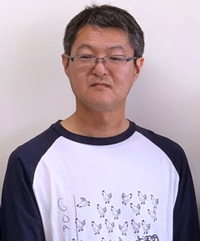Memories (I'll Never Forget You)
| ||||||||||||
|
| ||||||||||||
"Memories (I'll Never Forget You)"[2] is the end credits theme used in Kirby: Planet Robobot for both Story Mode and Meta Knightmare Returns. Composed by Hirokazu Ando, it is found as track number 099 in the Jukebox, and the 28th track of disc 2 of the Kirby: Planet Robobot Original Soundtrack.
Composition[edit]

The track is set predominantly in F major, although it eventually modulates into Bb major before resolving in C. The track is rendered allegro moderato, clocking in at around 119 bpm, in common time. A mix of Famicom and piano sounds dominate the orchestration[3] although other accompanying instruments do feature throughout.
The composition is a total synthesis of a number of tracks in Kirby: Planet Robobot that feature variations on the primary motif of "The Noble Haltmann", navigating between quotations of different tracks with complex and unusual key changes. Ando himself stated in a 2018 interview that "Memories" was his favorite piece of his own composition, precisely due to the idiosyncratic transitions and other non-standard musical choices in the song, which make "Memories" potentially impossible for him to surpass.[3]
Detailed outline[edit]
The introduction features the "Noble Haltmann" motif in the style of one of its invocations in "Venturing into the Mechanized World", followed by a brief interlude set in a rhythm that resembles a portion of "Flight of Azure" (although while the original track hits tonic-fifth-minor seventh tones, this variation emphasises hitting third-third-fourth tones). The track transitions into a variation on the same "Noble Haltmann" motif, in double time and with adjusted note timings. The driving melodic phrase is similar to that of "Flight of Azure" in this sense, but still distinct, including in either returning to the starting fifth or ending the figure on the dominant tone just above the starting fifth (rather than the fifth an octave above the starting fifth).
The segment driven by this phrase eventually gives way to one driven by the secondary motif of "The Noble Haltmann". The composition here resembles "Venturing", modulating down, but both the entry and resolution into this segment differ from "Venturing".
- "Venturing" enters its original segment from an ascending progression set in C but not resolved in the tonic, then modulating down every other measure through Bb, Ab, and Gb major (or equivalently G, F, and Eb minor), before ending the segment by modulating an inverted fifth interval up from being rooted in C to being rooted in G, with a transition back to C for the loop point.
- By contrast, "Memories" enters the segment from having resolved in F, and immediately uses that tone as a jumping off point to descend through Ab, Gb, and E major (or again alternatively F, Eb, and Db minor), eventually taking the inverted fifth from being rooted in Bb and modulating it up to F.
This immediately leads into a paraphrase of "Flight of Azure" set in F major, which largely resembles the original except transposed from C major (including starting by emphasising the tonic-fifth-minor seventh tones in the same portion quoted at the start of the track) and at a very slightly slower tempo (as "Flight" is set at roughly 123 bpm). Just as the original track eventually modulates keys up through the first inversion of an E triad, this segment eventually modulates up through the first inversion of an A triad.
After paraphrasing "Flight" for around a minute, the track feints modulating into Eb major for a measure, before actually settling into Bb major. The Haltmann motif, still in double time, accompanies a slow descending treble before taking over the primary melody line again. Descending octave intervals quoting the "Haltmann Works Co. HQ"/"Vagrant Counting Song of Retrospection" themes occur first set in Bb major then with the key changed up to C major. This modulation prepares the track for its ending, as the tempo slows and electronic instrumentation evokes rhythmic and melodic figures from "Bright Spinning Planet"/"Vagrant Counting Song of Retrospection". Finally, all chiptune accompaniment goes quiet, leaving the piano alone to conclude with a quote of "Green Greens"/"Kirby's Triumphant Return".
Other appearances[edit]
A big-band restyling of "Memories (I'll Never Forget You)" features in the last two minutes of "I'll Never Forget You", the 12th and final track in the Kirby Memorial Arrangements CD produced alongside the Kirby 25th Anniversary Orchestra Concert CD, and arranged by Shogo Sakai. This follows a similar restyling of "Magolor, the Far-Flung Traveler", and sets key segments of the original track in Eb major.
The Happiest Curtain Call for Heroes in Another Dimension in Kirby Star Allies also features a partial rearrangement of "Memories (I'll Never Forget You)" in Eb major as part of "Memories of the Grand Finale",[Japanese title] composed by Hirokazu Ando in an orchestral style. "Memories of the Grand Finale" is found in the Jukebox as Track 196, and in Kirby Star Allies: The Original Soundtrack as the 37th track of disc 5.
Names in other languages[edit]
"Memories (I'll Never Forget You)"[edit]
| Language | Name | Meaning |
|---|---|---|
| Japanese | メモリーズ:あなたとの思い出は忘れない memori~zu: anatatono omoidewa wasurenai |
Memories: I Won't Forget My Memories with You |
"I'll Never Forget You"[edit]
| Language | Name | Meaning |
|---|---|---|
| Japanese | キミたちとの思い出は忘れない kimitachitono omoidewa wasurenai |
We Won't Forget Our Memories with You |
"Memories of the Grand Finale"[edit]
| Language | Name | Meaning |
|---|---|---|
| Japanese | だいだんえんの、おもいでたち。 daidanenno, omoidetachi. |
Memories of the Grand Finale |
References
| |||||||||||||||||||||||||||||